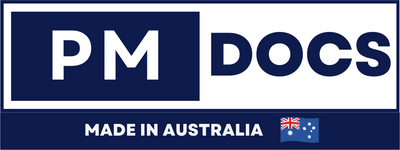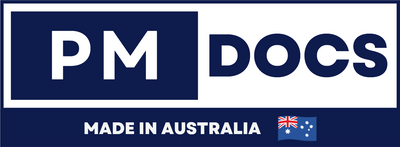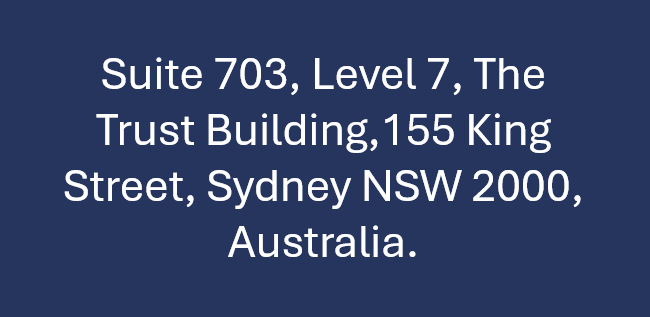ISO 9001 Accreditation in Australia vs Certification: Whats the Difference?
ISO 9001 Accreditation In Australia vs. Certification: Unpacking The Critical Difference
In the competitive landscape of Australian business, achieving ISO 9001 is a coveted mark of quality and commitment. It signals to customers, partners, and stakeholders that an organisation adheres to globally recognised standards for quality management. However, navigating the world of ISO can often lead to confusion, particularly around two frequently interchanged terms: "accreditation" and "certification."
While seemingly similar, these terms represent distinct processes with different purposes and recipients. Understanding their precise meaning, especially within the Australian context with bodies like JAS-ANZ, is crucial for any business seeking to establish genuine credibility and leverage its quality management efforts effectively.
This blog post will demystify the difference between ISO 9001 certification and accreditation, explaining who they apply to, what they achieve, and why this distinction matters deeply for Australian businesses.
What Is ISO 9001 Certification?
At its core, ISO 9001 Certification is the process by which an independent, external body assesses a company's Quality Management System (QMS) against the requirements of the ISO 9001 standard. If the QMS meets all the specified criteria, the company is then "certified."
Who gets certified? Individual organisations, businesses, or specific departments within them.
What does it signify? That the organisation has:
- Established a robust QMS.
- Documented its processes.
- Consistently meets customer and regulatory requirements.
- Continuously works towards improving customer satisfaction and its own operational efficiency.
The journey to certification typically involves several key stages:
Table 1: Key Stages Of ISO 9001 Certification For A Business
| Stage | Description | Purpose |
|---|---|---|
| 1. Gap Analysis | An optional but highly recommended initial assessment to identify areas where the current QMS falls short of ISO 9001 requirements. | To understand the current state and plan the scope of work required to meet the standard. |
| 2. QMS Development | Designing and documenting processes, procedures, policies, and quality objectives tailored to the organisation's operations. | To build a system that aligns with ISO 9001 principles and integrates quality into daily operations. |
| 3. Implementation | Rolling out the new or revised QMS across the organisation, training staff, and ensuring adherence to documented processes. | To embed the QMS into the organisational culture and ensure it functions as intended. |
| 4. Internal Audit | Conducting an internal review of the QMS by trained personnel (or external consultants) to verify its effectiveness and compliance. | To identify non-conformities and areas for improvement before the external audit. |
| 5. Management Review | Senior management reviews the QMS's performance, audit results, customer feedback, and sets future objectives. | To ensure top-level commitment, strategic direction, and continuous improvement of the QMS. |
| 6. External Audit (Stage 1) | A Certification Body (CB) conducts an initial review of documentation and readiness for the main audit. | To confirm the organisation's readiness for the full assessment and address any major gaps beforehand. |
| 7. External Audit (Stage 2) | A full, on-site assessment by the CB to evaluate the QMS's implementation and effectiveness against all ISO 9001 requirements. | To formally determine if the organisation's QMS meets the ISO 9001 standard and is worthy of certification. |
| 8. Certification | Upon successful completion of Stage 2, the CB issues an ISO 9001 certificate, valid for three years, subject to annual surveillance audits. | To formally recognise the organisation's compliance with ISO 9001 and allow them to promote their certified status. |
What Is Accreditation (in the context of ISO 9001)?
While certification applies to a business's QMS, Accreditation is a formal recognition that a Certification Body (CB) is competent, impartial, and operates consistently when performing certifications. In simpler terms, accreditation is the process of "certifying the certifiers."
Who gets accredited? The independent bodies (Certification Bodies or Registrars) that perform the ISO 9001 audits and issue certificates to companies.
What does it signify? That the Certification Body itself operates to international standards for audit practices, professional competence, and impartiality. This ensures that the certificates they issue are credible and globally recognised.
In Australia, the primary accreditation body for management systems (including ISO 9001) is the Joint Accreditation System of Australia and New Zealand (JAS-ANZ). JAS-ANZ is the government-appointed body responsible for providing accreditation services to CBs operating in Australia and New Zealand. When you see a JAS-ANZ logo on an ISO 9001 certificate issued to an Australian business, it means that the Certification Body that issued that certificate has been rigorously assessed and deemed competent by JAS-ANZ.
Table 2: Accreditation Bodies: Global & Australian Context
| Body Type | Examples | Role in ISO 9001 |
|---|---|---|
| International Standard Setter | International Organization for Standardization (ISO) | Develops and publishes the ISO 9001 standard itself. Does not perform certification or accreditation. |
| National Accreditation Bodies (NABs) | JAS-ANZ (Australia & New Zealand), ANAB (USA), UKAS (UK), DAkkS (Germany) | Formally assesses and accredits Certification Bodies (CBs) to ensure their competence, impartiality, and consistency in applying ISO standards. |
| Certification Bodies (CBs) | SAI Global, BSI, DNV, TUV Rheinland (and many others operating in Australia) | Audits organisations' QMS against the ISO 9001 standard and issues certificates if requirements are met. These CBs are ideally accredited by a NAB. |
The Critical Difference: Who, What, Why
The fundamental distinction boils down to the recipient and purpose:
-
Certification is for a business's Quality Management System. It proves the business meets the ISO 9001 standard.
- Accreditation is for a Certification Body. It proves the CB is competent to conduct ISO 9001 assessments and issue reliable certificates.
Think of it this way: a driver gets a license (certification) from the Department of Transport (certification body), which itself is authorised and monitored by a higher authority (accreditation body). You wouldn't say the driver is "accredited"; they are "licensed" or "certified."
Table 3: ISO 9001 Certification vs. Accreditation – A Direct Comparison
| Feature | ISO 9001 Certification | Accreditation of a Certification Body |
|---|---|---|
| Who is Assessed? | An organisation's Quality Management System (QMS). | The competence and impartiality of a Certification Body (CB). |
| What is Assessed? | Compliance of the QMS with the ISO 9001 standard. | Conformity of the CB's operations to international accreditation standards (e.g., ISO/IEC 17021). |
| By Whom? | An independent Certification Body (CB). | An independent Accreditation Body (AB), like JAS-ANZ in Australia. |
| Purpose? | To demonstrate an organisation's commitment to quality and customer satisfaction. | To provide confidence and credibility in the certificates issued by CBs. |
| Outcome? | An ISO 9001 certificate for the organisation. | A formal status of "Accredited" for the Certification Body. |
| Logo Used? | The CB's logo, often alongside the AB's (e.g., JAS-ANZ) logo on the certificate. | The AB's logo only, displayed by the accredited CB. |
| Validity? | Typically 3 years, with annual surveillance audits. | Ongoing, subject to regular reassessment by the AB. |
Why This Distinction Matters For Australian Businesses
Understanding the difference isn't just academic; it has significant practical implications for Australian organisations:
-
Ensuring Credibility and Trust: A certificate from an accredited Certification Body carries significantly more weight than one from a non-accredited body. When a certificate bears the JAS-ANZ logo, it assures the receiving party (customers, tender evaluators, supply chain partners) that the audit process was rigorous, fair, and conducted by a competent body.
-
Impact: Builds genuine trust, enhances reputation, and eliminates doubts about the validity of your ISO 9001 status.
-
Impact: Builds genuine trust, enhances reputation, and eliminates doubts about the validity of your ISO 9001 status.
-
Meeting Tender and Contractual Requirements: Many government tenders, major corporate contracts, and supply chain agreements in Australia explicitly require ISO 9001 certification to be issued by a Certification Body accredited by JAS-ANZ (or another internationally recognised AB).
-
Impact: Failure to use an accredited CB can result in disqualification from tenders or non-compliance with crucial contractual obligations.
-
Impact: Failure to use an accredited CB can result in disqualification from tenders or non-compliance with crucial contractual obligations.
-
Global Recognition: JAS-ANZ is a signatory to international multilateral recognition arrangements (e.g., IAF MLA). This means an ISO 9001 certificate issued by a JAS-ANZ accredited CB is recognised and accepted by other signatory countries worldwide.
-
Impact: Facilitates international trade and partnerships for Australian businesses, providing a globally recognised quality benchmark.
-
Impact: Facilitates international trade and partnerships for Australian businesses, providing a globally recognised quality benchmark.
-
Avoiding "Paper Mills" and False Claims: Unfortunately, there are unaccredited "certification bodies" that offer quick, cheap, and often less rigorous ISO 9001 certifications. While they might issue a certificate, it lacks the backing and credibility of a proper accreditation system.
-
Impact: Investing in a non-accredited certification can be a waste of resources, damaging your reputation if discovered, and failing to provide the intended market advantage.
-
Impact: Investing in a non-accredited certification can be a waste of resources, damaging your reputation if discovered, and failing to provide the intended market advantage.
-
Driving True Improvement: Accredited CBs are themselves held to high standards, ensuring their auditors are qualified and their processes are robust. This translates to more thorough and valuable audits for your business, leading to genuine insights and continuous improvement of your QMS.
- Impact: Your ISO 9001 journey becomes a path to actual operational excellence, not just a certificate on the wall.
The Role Of JAS-ANZ In Australia
JAS-ANZ is the backbone of confidence in the Australian (and New Zealand) conformity assessment system. Their role is pivotal:
-
Oversight: They rigorously assess and monitor Certification Bodies against international standards (like ISO/IEC 17021-1).
-
Credibility: By accrediting CBs, they provide a layer of assurance that the certification process is impartial, competent, and consistent.
- Harmonisation: They ensure that Australian certificates are consistent with global best practices, aiding international trade.
When selecting a Certification Body for your ISO 9001 journey in Australia, always look for the JAS-ANZ logo and verify their accreditation status on the JAS-ANZ website.
Choosing A Certification Body In Australia: A Practical Guide
Given the importance of accreditation, here are key considerations when selecting a CB for your ISO 9001 certification:
-
JAS-ANZ Accreditation: This is non-negotiable. Verify their accreditation status directly on the JAS-ANZ website.
-
Industry Experience: Does the CB have auditors with experience in your specific industry or sector? This ensures a more relevant and insightful audit.
-
Reputation and References: Research the CB's standing in the market. Ask for client references.
-
Auditor Competence and Style: Inquire about the experience and approach of their auditors. A good auditor should be thorough, fair, and provide valuable feedback.
-
Cost and Contract Terms: While not the sole factor, compare pricing structures, contract lengths, and any hidden fees.
- Support and Communication: Assess their responsiveness and how well they communicate throughout the certification process.
Conclusion
For Australian businesses serious about quality, the distinction between ISO 9001 certification and accreditation is not just semantic; it's fundamental. ISO 9001 certification validates your organisation's commitment to quality management, while accreditation validates the competence and credibility of the body that issues that certification.
By choosing a Certification Body that is accredited by a respected national body like JAS-ANZ, you ensure that your investment in ISO 9001 brings genuine credibility, opens doors to new opportunities, and truly contributes to your organisation's continuous improvement journey. Don't just get certified; get certified with confidence, knowing the entire chain of trust is robust and internationally recognised.





